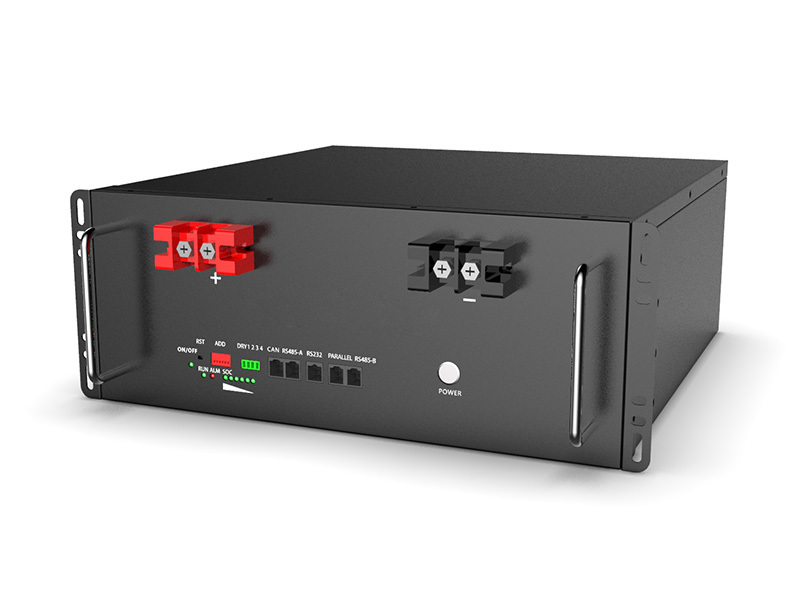Camping Off-Grid? Discover the Power of RV Lithium Batteries
Camping Off-Grid? Discover the Power of RV Lithium Batteries
Table of Contents
1. Introduction to Off-Grid Camping
2. Why Choose Lithium Batteries for Your RV?
2.1 Advantages of Lithium Batteries
2.2 Longevity and Life Cycle
2.3 Weight Comparison with Lead-Acid
3. How Do RV Lithium Batteries Work?
4. Installation of Lithium Bat
2025-09-11

Camping Off-Grid? Discover the Power of RV Lithium Batteries
Table of Contents
- 1. Introduction to Off-Grid Camping
- 2. Why Choose Lithium Batteries for Your RV?
- 2.1 Advantages of Lithium Batteries
- 2.2 Longevity and Life Cycle
- 2.3 Weight Comparison with Lead-Acid
- 3. How Do RV Lithium Batteries Work?
- 4. Installation of Lithium Batteries in Your RV
- 5. Maintenance and Care for Lithium Batteries
- 6. Cost Analysis: Lithium vs. Lead-Acid Batteries
- 7. Frequently Asked Questions
- 8. Conclusion: The Future of Off-Grid Camping
1. Introduction to Off-Grid Camping
Camping off-grid offers an unparalleled sense of freedom and adventure. It allows you to immerse yourself in nature, away from the hustle and bustle of daily life. One of the key components to ensure a seamless off-grid experience is reliable power. This is where RV lithium batteries come into play. They provide a robust and efficient energy solution for all your camping needs.
2. Why Choose Lithium Batteries for Your RV?
When it comes to powering your RV, lithium batteries stand out as a superior choice. They not only enhance your camping experience but also offer several benefits over traditional lead-acid batteries.
2.1 Advantages of Lithium Batteries
Lithium batteries boast a variety of advantages that make them an ideal choice for RV owners:
- **Higher Efficiency**: Lithium batteries have a better discharge rate, allowing you to use a larger percentage of their capacity without damaging the battery.
- **Faster Charging**: They typically charge faster than lead-acid batteries, which means less downtime and more time enjoying your adventure.
- **Temperature Tolerance**: Lithium batteries perform well in various temperatures, ensuring consistent power output in any climate.
2.2 Longevity and Life Cycle
One of the most significant benefits of lithium batteries is their impressive lifespan. They can last up to **10 years** or more with proper care, significantly outlasting their lead-acid counterparts, which typically last around **3-5 years**. The longer life cycle translates to fewer replacements and lower costs in the long run.
2.3 Weight Comparison with Lead-Acid
Weight is another critical factor when choosing a battery for your RV. Lithium batteries are remarkably lighter than lead-acid batteries, making them easier to install and reducing the overall weight of your RV. This can enhance fuel efficiency and improve handling on the road.
3. How Do RV Lithium Batteries Work?
Understanding how RV lithium batteries function will help you maximize their potential. They operate using lithium-ion technology, which allows them to store and release energy efficiently. When charged, lithium ions move from the positive electrode to the negative electrode, storing energy. Upon discharge, this process reverses, providing power to your RV appliances.
4. Installation of Lithium Batteries in Your RV
Installing lithium batteries in your RV is a straightforward process, but it requires careful planning and execution.
4.1 Tools Needed for Installation
To install lithium batteries in your RV, you will need the following tools:
- **Socket Set**: For securing the battery terminals.
- **Wire Strippers**: To prepare the battery wires for connections.
- **Screwdriver**: For any mounting brackets.
- **Voltmeter**: To check battery voltage and ensure proper connections.
4.2 Step-by-Step Installation Guide
1. **Safety First**: Disconnect your RV from any power source before starting.
2. **Remove Existing Battery**: Take out the old battery and clean the area.
3. **Position the Lithium Battery**: Place the lithium battery in the designated compartment, ensuring it fits properly.
4. **Connect the Wires**: Attach the positive and negative wires to the corresponding terminals on the lithium battery.
5. **Secure the Battery**: Use mounting brackets to secure the battery in place.
6. **Reconnect Power Source**: Once everything is secure, reconnect your RV to the power source and check for any issues.
5. Maintenance and Care for Lithium Batteries
Proper maintenance is essential to ensure your lithium batteries operate efficiently throughout their lifespan.
5.1 Charging Best Practices
- **Use a Compatible Charger**: Always use a charger specifically designed for lithium batteries to avoid damage.
- **Avoid Overcharging**: Monitor your battery levels and avoid charging beyond the recommended limits.
- **Regular Checks**: Periodically check the battery for any signs of wear or damage.
5.2 Storage Tips When Not in Use
- **Keep Charged**: Store lithium batteries at a partial charge (around 50%) to prolong their life.
- **Cool, Dry Location**: Store batteries in a cool, dry location to prevent degradation.
6. Cost Analysis: Lithium vs. Lead-Acid Batteries
When evaluating the cost of lithium batteries, it’s essential to consider both upfront and long-term expenses. While lithium batteries may have a higher initial cost, their longevity and efficiency can lead to significant savings over time. A typical lithium battery can range from **$800 to $2,000**, while lead-acid batteries often cost between **$100 and $300**. However, considering the lifespan, lithium batteries become more cost-effective.
7. Frequently Asked Questions
What is the lifespan of a lithium battery?
Lithium batteries can last **10 years** or more with proper care and maintenance.
Are lithium batteries safe for RV use?
Yes, lithium batteries are safe for RV use when installed and maintained correctly.
Can I use my existing charger for lithium batteries?
You should use a charger specifically designed for lithium batteries to ensure safe and effective charging.
How do I know when my lithium battery needs replacement?
Signs include decreased capacity, unexpected shutdowns, or physical damage to the battery casing.
Is it worth switching from lead-acid to lithium batteries?
Yes, the long-term cost savings, efficiency, and longevity make lithium batteries a worthwhile investment.
8. Conclusion: The Future of Off-Grid Camping
RV lithium batteries are revolutionizing the way we approach off-grid camping. Their numerous advantages, including efficiency, longevity, and lightweight design, make them the ideal choice for adventurers seeking independence in remote locations. By investing in lithium batteries, you are not only enhancing your camping experience but also embracing a sustainable power solution for the future. As off-grid camping becomes increasingly popular, understanding and utilizing the power of RV lithium batteries is a step toward making your outdoor adventures more enjoyable and hassle-free.
Key words:
Previous:
Related News


